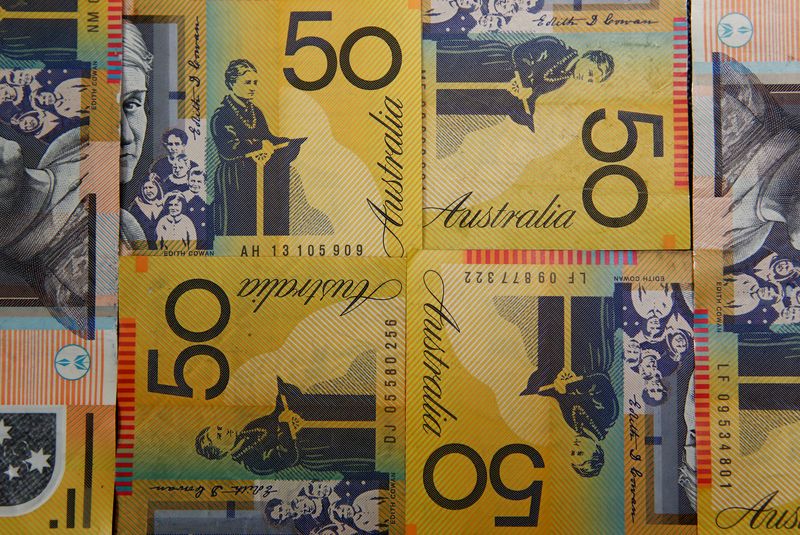 © Reuters
© Reuters
Investing.com-- Most Asian currencies rose slightly on Tuesday, taking some relief from a weaker dollar after U.S. service sector data disappointed for May, while the Australian dollar crept lower amid uncertainty over a Reserve Bank interest rate decision.
The Australian dollar fell 0.1%, with markets split over whether the RBA will hike rates further. The bank had unexpectedly raised rates in May, and could be inclined to do so again after a stronger-than-expected monthly inflation reading.
But other indicators showed that the Australian economy was cooling further, as an unexpected drop in the country’s trade surplus looked set to knock 0.2 percentage points off its first-quarter gross domestic product. This came even as Australia logged a much bigger-than-expected first quarter current account surplus.
Broader Asian currencies inched higher as the dollar sank from near 11-week highs, after data showed that the U.S. service sector barely grew in May.
The dollar index and dollar index futures extended losses into Asian trade, falling 0.1% each as the data signaled more cooling in the U.S. economy, presenting lesser headroom for the Fed to keep raising interest rates.
But this offered some relief to Asian currencies, which were battered by fears of a hawkish Fed in recent sessions.
The Chinese yuan edged up from six-month lows against the dollar on Tuesday, ahead of key inflation and trade data due this week, which is expected to shed more light on an economic rebound in the country.
Better-than-expected service sector data offered some relief to the yuan, which was otherwise battered by fears of a slowing post-COVID rebound in the country.
The Japanese yen was flat after strengthening against the greenback in overnight trade. A drop in Japanese household spending and average cash earnings pointed to a potential slowdown in inflation over the coming months, with wage growth also continuing to lag in the country.
The rate sensitive South Korean won rose 0.3%, while the Indian rupee was flat ahead of a central bank meeting this week.
Still, broader sentiment remained largely frayed ahead of a Fed meeting next week, with markets split over whether the central bank will pause its rate hike cycle. While both U.S. inflation and labor market data read higher-than-expected in recent months, an overall slowdown in the economy could see the Fed temper its hawkish stance.

